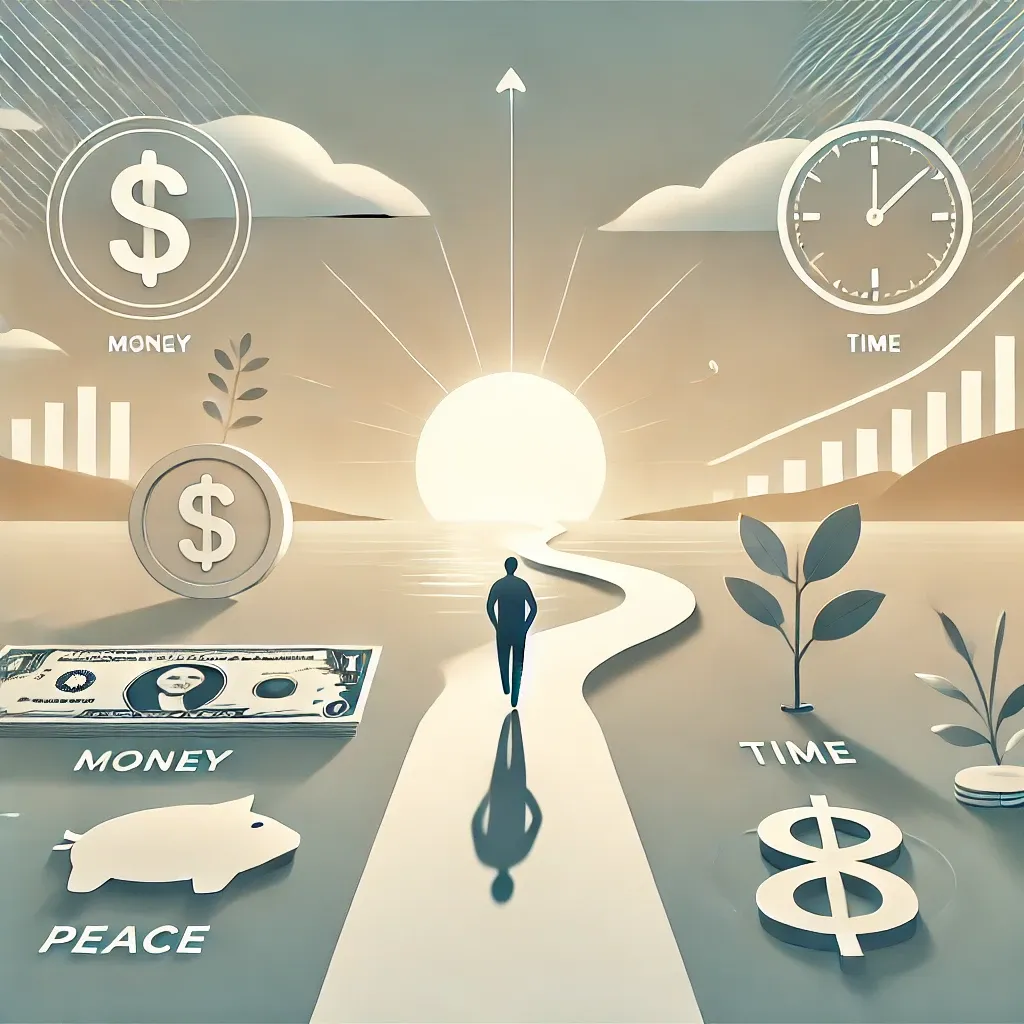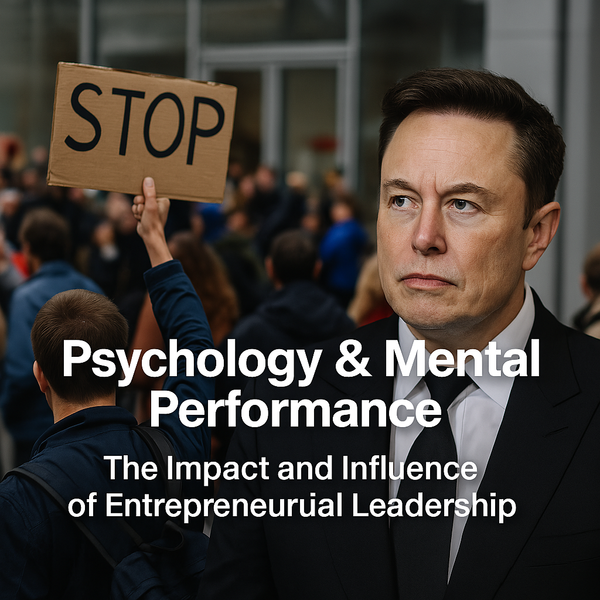Unlocking Financial Freedom: The Minimalist Way to Wealth

The Intersection of Minimalism & Financial Independence: Unleashing the Power of Less in an Era of Excess
Imagine a life teeming with fewer possessions, minimal clutter, and hardly any debt; a life where simplicity is the norm, yet rich in meaningful experiences. This encapsulates the essence of minimalism, a lifestyle that embodies the 'less is more' philosophy. But, how does this philosophy intersect with financial independence, and how can it serve as a compass in navigating the economically challenging terrain of the 21st century?
In the context of today’s consumer-driven society, where the accumulation of more often equates to success, minimalism is the polar opposite. It challenges convention and encourages individuals to concentrate on what's essential, carving out room for what truly matters. Such a lifestyle can play a pivotal role in achieving financial independence—a state where your wealth sustainably supports your living expenses, empowering you to live life on your own terms.
A Beacon of Financial Freedom Amidst a National Student Loan Crisis
Recent policy changes proposed by President Donald Trump signal a seismic shift in the management of student loans. The President’s proposal to transition the Department of Education's student loan portfolio to the Small Business Administration has ignited a storm of questions about the future of education finance. Amid this whirlwind of uncertainty, the minimalist lifestyle, rooted in financial independence and liberation from debt, offers a refreshing and empowering perspective.
Minimalism & Financial Independence: A Spirited Discourse
Minimalism and financial independence are two buzzwords dominating contemporary discourse. Some argue that adopting a minimalist lifestyle can provide the bedrock for financial independence, while others consider this connection not universally applicable. Let's delve into the arguments for and against these views.
Advocating for the Symbiosis of Minimalism and Financial Independence
Proponents of minimalism argue that by paring down material possessions and focusing on life's essentials, individuals can bolster their savings. The accumulated savings can then be invested judiciously to generate passive income, culminating in financial independence. They purport that minimalism promotes conscious consumption, reduced indebtedness, and financial liberation.
Prominent minimalist expert Joshua Fields Millburn echoes this sentiment. He states, "Minimalism is a tool to rid yourself of life’s excess in favor of focusing on what’s important—so you can find happiness, fulfillment, and freedom." He suggests that this ideology can also be applied to personal finance, allowing individuals to concentrate on financial goals and invest astutely.
Questioning the Link Between Minimalism and Financial Independence
Critics, on the other hand, argue that minimalism is a privilege accessible only to a select demographic. They contend that the concept neglects those who lead minimalist lives not out of choice but due to financial constraints. Furthermore, they argue that achieving financial independence isn't just about curbing expenditure—it also necessitates earning more, which can be a daunting challenge amidst economic uncertainties.
Esteemed financial expert Robert Kiyosaki articulates this viewpoint: "Financial independence is about having more options. It is about increasing your income while decreasing your liabilities. Minimalism alone cannot accomplish this—it's a synergistic combination of financial literacy, intelligent investment decisions, and disciplined savings."
Trump's Proposal: Small Business Administration Taking Over Student Loans
President Donald Trump recently suggested that the Small Business Administration should take over the Department of Education's student loan portfolio. This proposed transition has sparked nationwide discussions, with both advocates and critics voicing their perspectives.
Arguments Supporting Trump's Proposal
Advocates argue that the move could streamline the student loan process and potentially reduce bureaucratic inefficiencies. They posit that the Small Business Administration, with its business-centric approach, may be better equipped to manage the Herculean task of administering the student loan portfolio. They contend that this could potentially enhance the system's efficiency and effectiveness.
Arguments Against Trump's Proposal
Critics, however, express concerns that this move could diminish the Department of Education's role and influence, leading to a potential neglect of educational issues. They argue that education and student loans should be managed by an agency dedicated solely to education, not business. They also express fears that this transition could lead to a decreased emphasis on student loan forgiveness and result in harsher terms for borrowers.
In conclusion, both these topics—minimalism & financial independence and the proposed shift of the student loan portfolio—provoke strong views and counterarguments. As society evolves, it remains to be seen how these debates will shape future policies and societal norms.
Embracing Minimalism: A Gateway to Financial Independence
In the frenetic world of consumerism, the concept of minimalism is rapidly gaining traction as a lifestyle trend. This trend goes beyond the act of decluttering your physical space—it extends into the realm of personal finance. Experts believe that by embracing minimalism, individuals can chart their own path towards financial independence.
Minimalism and Financial Independence: The Linkage
Financial independence isn't merely about earning a high income—it's about efficacious money management. By adopting a minimalist lifestyle, you can trim your expenses, save more, and invest wisely, which are pivotal to achieving financial independence.
The Influence of Minimalism on Financial Independence: Expert Opinions
Experts opine that minimalism can significantly contribute to financial independence. By trimming unnecessary expenses, individuals can gain greater control over their finances. Joshua Becker, a prolific minimalist author, says, "The first step to financial freedom is to become intentional with our purchases. The less we need, the less we need to earn, and the more we can save and invest."
Dismantling Debt: A Vital Step towards Financial Independence
A minimalist lifestyle can also aid in tackling one of the biggest roadblocks to financial independence: debt. By living within one's means and avoiding unnecessary expenses, individuals can expedite their debt repayment. This concept ties back to President Donald Trump's announcement about the takeover of the Department of Education’s student loan portfolio by the Small Business Administration. This move could potentially lessen the financial burden on students, allowing them to focus on saving and investing for their future.
Minimalism and Financial Independence: A Burgeoning Trend
The trend of minimalism as a means to financial independence is gaining momentum, particularly among millennials. This generation is increasingly embracing this lifestyle to break free from the shackles of consumerism and attain financial freedom.
In Conclusion
Minimalism and financial independence are intrinsically linked. By embracing a minimalist lifestyle, one can take control of their finances, reduce debt, save more, and ultimately, achieve financial independence.
Whether this trend will continue to gain traction in the future is uncertain. However, it certainly offers a refreshing perspective on personal finance and presents a potential solution to the pervasive issue of financial stress.
FAQs: Minimalism & Financial Independence
1. What is minimalism?
Minimalism is a lifestyle that encourages individuals to live with less. This means reducing the number of your possessions, decluttering your space, and focusing on what truly matters in life. It's about finding freedom and joy in simplicity. Learn more about Minimalism here.
2. How can minimalism lead to financial independence?
By adopting a minimalist lifestyle, you can significantly reduce your expenses and save more money. This lifestyle discourages unnecessary spending and encourages smart financial decisions. By living with less, you have more to invest, paving the way to financial independence. Read more on the link between Minimalism and Financial Independence here.
3. What is financial independence?
Financial independence is a state where you have sufficient income to cover your living expenses for the rest of your life without needing to work full time. This can be achieved through saving and investing a significant part of your income over a sustained period. Learn more about Financial Independence here.
4. How does minimalism help with debt?
By embracing minimalism, you can curb your spending and augment your savings. This extra money can be used to pay off debt faster, reducing interest payments and freeing up more money for savings and investments.
5. How can I start living a minimalist lifestyle?
Begin by decluttering your home and discarding items that you don't need or use. Aim to reduce your expenses by identifying areas where you can cut back, such as eating out less or cancelling unnecessary subscriptions. Check out this guide on how to start living a minimalist lifestyle.
6. Is financial independence possible for everyone?
While financial independence might seem like a distant dream for some, it's achievable for many with meticulous planning and disciplined saving and investing. The key is to start early, reduce spending, and invest wisely. Here's a detailed guide on how to achieve financial independence.
7. Can minimalism and financial independence lead to early retirement?
Yes, many individuals who ascribe to these principles are able to retire early. By living a minimalist lifestyle and achieving financial independence, you can have the freedom to choose when and how you work, potentially leading to early retirement.
8. How does minimalism affect our environment?
Minimalism promotes reducing, reusing, and recycling, which can have a significant positive impact on the environment. By consuming and wasting less, we can reduce our carbon footprint and contribute towards conserving our planet's resources. Read about Minimalism and its impact on the environment here.
Conclusion: Harnessing Minimalism for Financial Independence
Adopting a minimalist lifestyle can yield multiple benefits—from alleviating stress and clutter to laying the groundwork for financial independence. By living with less, we can hone our focus on what truly matters, save more money, and invest in our future. While it may require adjustments and sacrifices, the rewards in terms of financial security and freedom are profound.
As for President Trump's announcement, the move to have the Small Business Administration absorb the Department of Education’s student loan portfolio could potentially streamline processes and offer more autonomy to states. However, the impact on students and loan holders will depend on the specifics of how this change is implemented. This development underscores the importance of financial literacy and the value of striving for financial independence.




